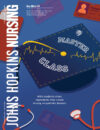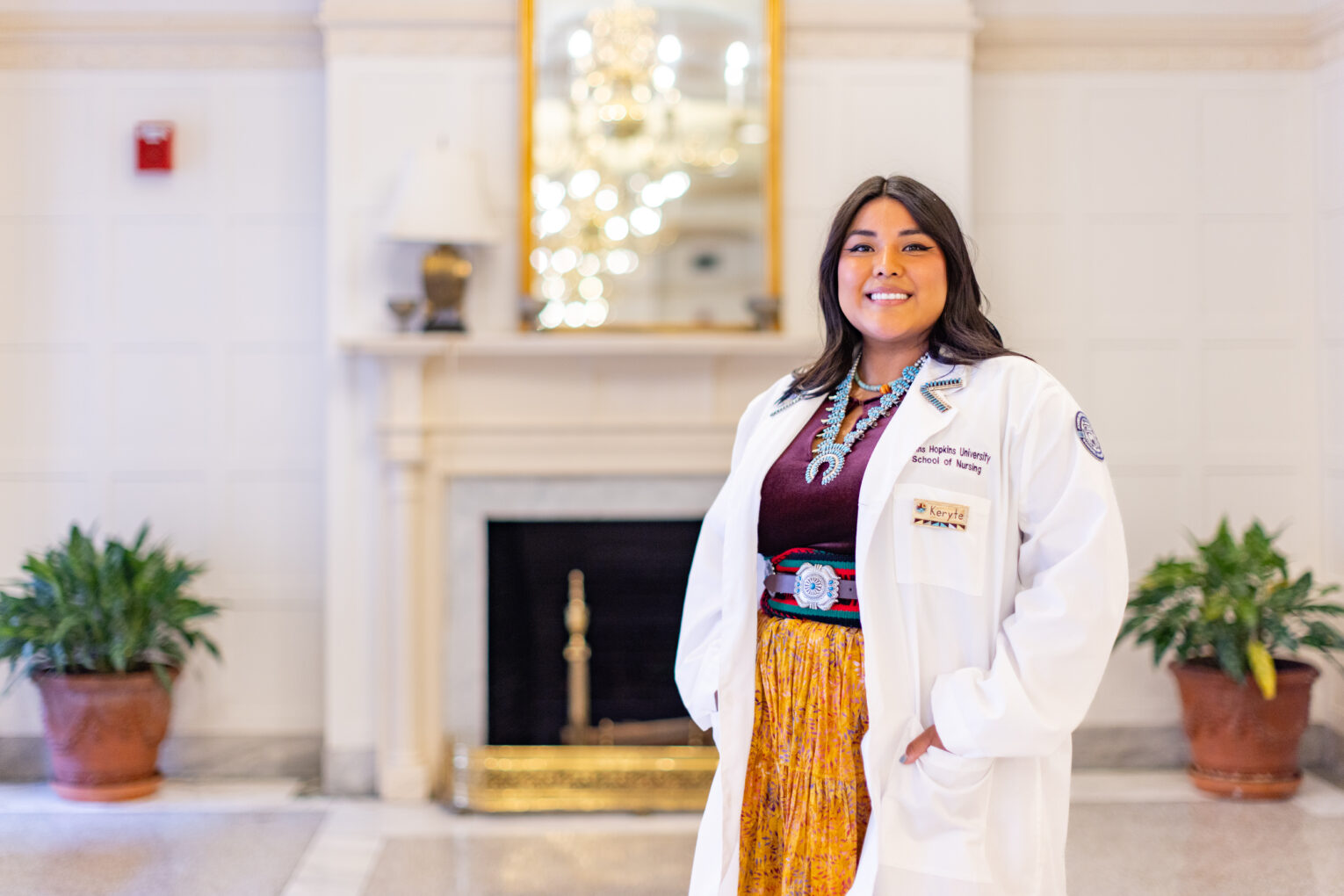
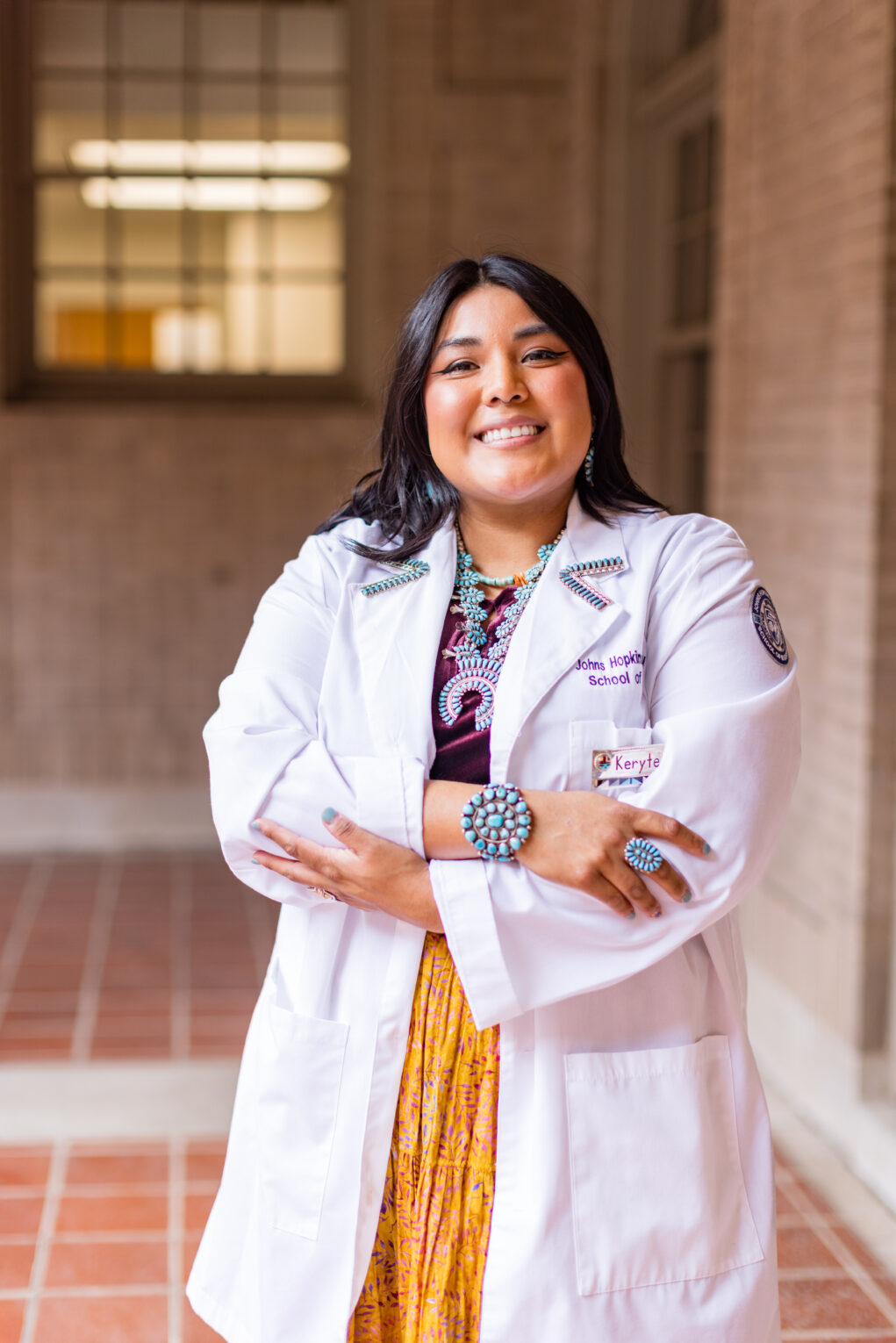
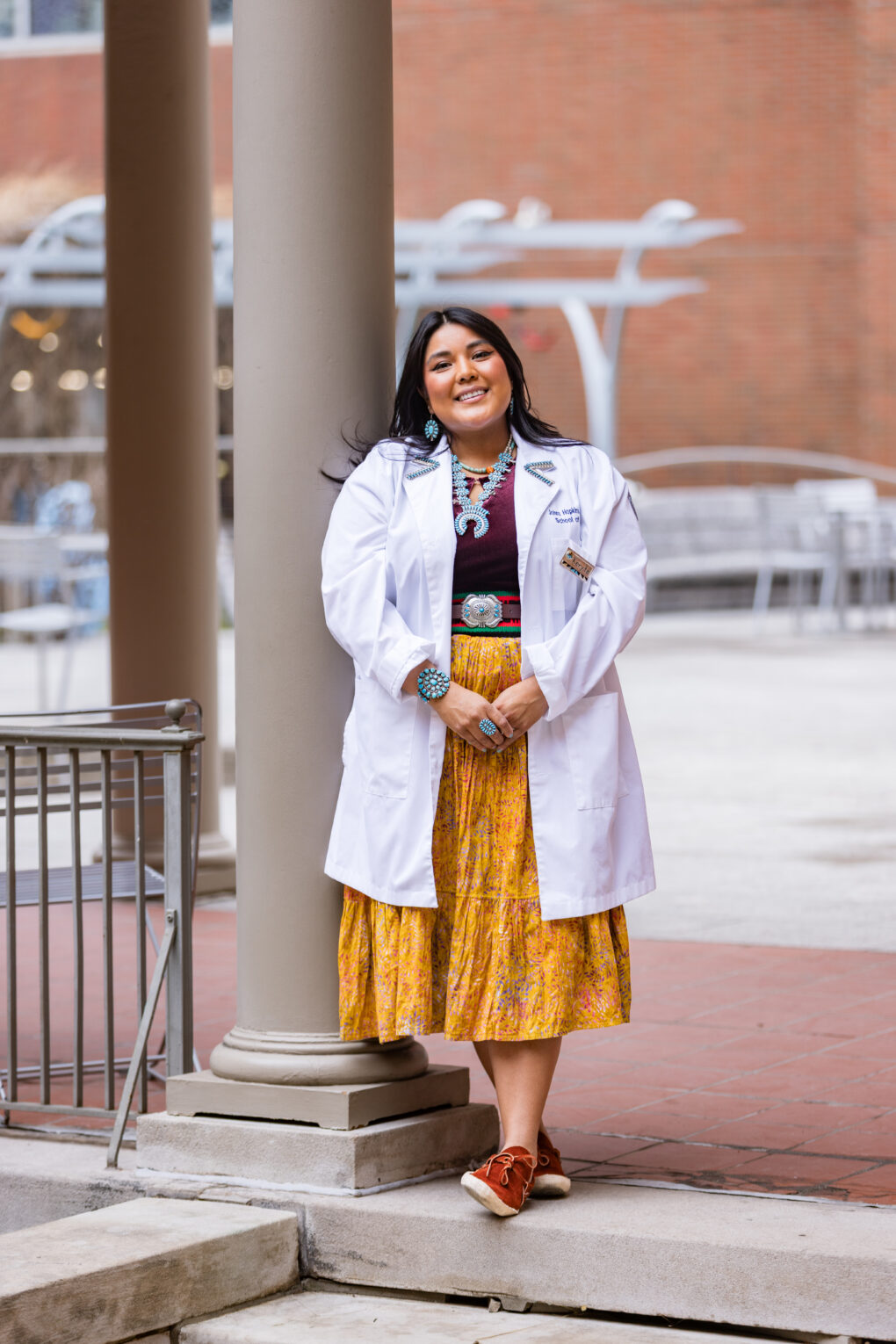
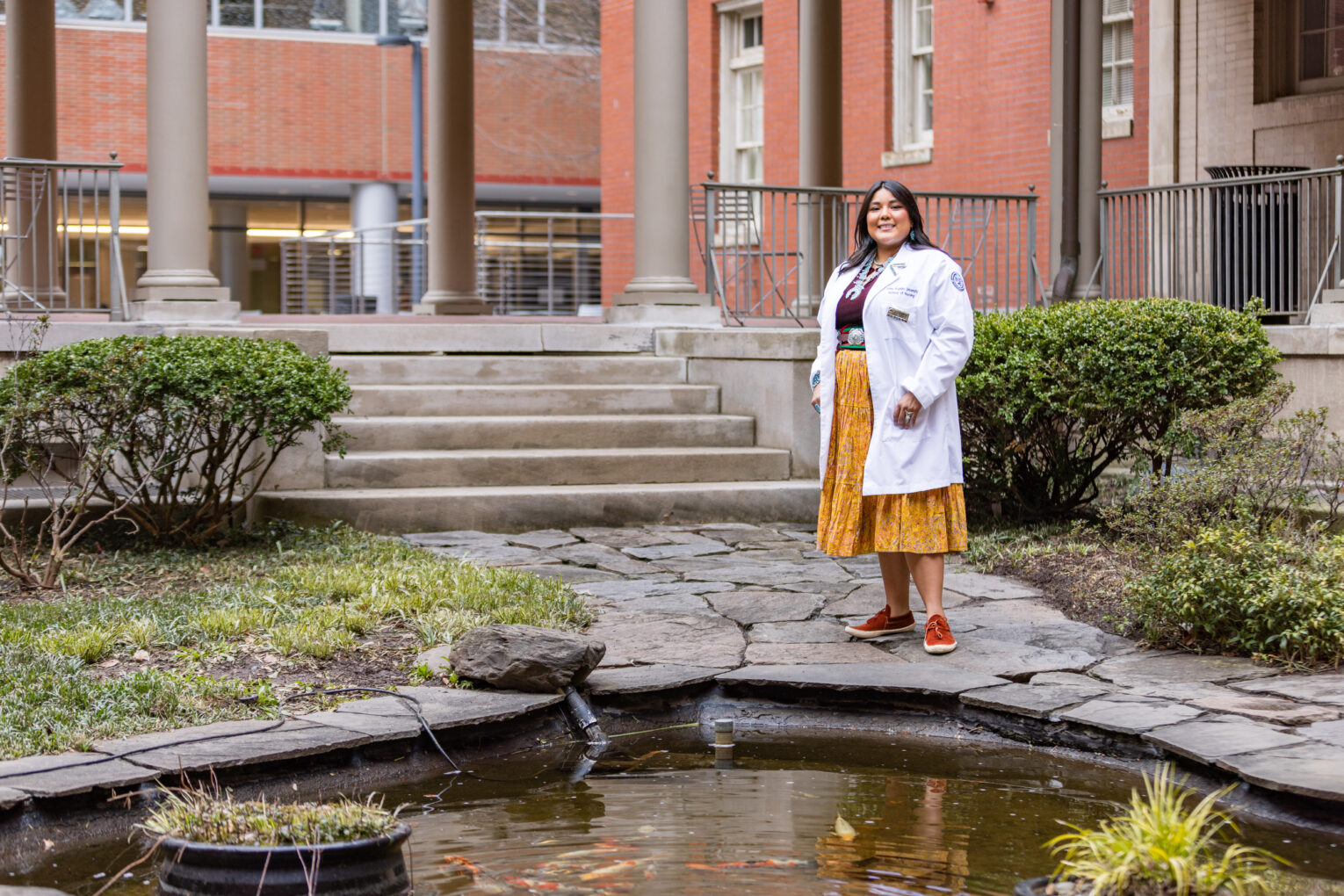
Phoebe Keryte felt seen and heard at JHSON, and found a place to honor and grow her Indigenous heritage.
In her own words (and language):
“Yá’á’tééh shí éí Phee-Bah-She yinishyé. Naasht’ezhí Tachii’nii nishłí, kiis’áanii báshíshchíín, Diné łizhiní dashícheii adóó kiis’áanii dashínálí. Ahéhéé. Hello, my name is Phee-bah-seh, I am Zuni and Red Streak Running into water people clan, born for Isleta and Santa Pueblo. My maternal grandfather is Black Sheep clan, and my paternal grandfather is Isleta Pueblo. My Tiwa name Phee-bah-seh translates to When the Rain Clouds Pile on Top of Each Other.”
For Phoebe Keryte, nursing is more than a profession—it is a way to serve her community, honor her heritage, and create lasting change in Indigenous health care. Her nursing journey is as rich and layered as the cultural heritage she proudly embraces. She brings a unique perspective shaped by her experiences growing up in Isleta Pueblo and on the Navajo Nation, both tribes located in the Southwest in what is now known as New Mexico. She comes from a matrilineal society where the leadership of women is central to community well-being. Her path to nursing has been guided by a desire to bridge traditional knowledge with modern health care practices.
Keryte can trace her interest in nursing back to her childhood, visiting the Albuquerque Veterans Hospital with her father, a disabled veteran. She recalls the exceptional care the nurses provided along with their compassion, communication, and cultural humility.
“They explained everything in terms we could understand,” she says. “It made a lasting impression on me.”
However, it was not until Keryte began her undergraduate studies that she truly felt the allure of scrubs and latex gloves.
She attended Northwest Indian College, a tribal college on the Lummi Reservation in the Pacific Northwest, where she initially considered a degree in environmental science. However, working closely with families and young children in an early learning center helped her realize her passion for health care. Through these experiences, Keryte saw firsthand the vital role nurses play in advocating for and supporting patients.
This impression led Keryte to get her feet wet as a medical technician and caregiver at the Isleta Pueblo Assisted Living and Memory Care Unit. Working there brought her closer to her own culture and solidified her decision to pursue nursing.
“Many elders immediately recognized me as a familiar face and would speak in our Tiwa language,” she says. “It was a wholesome experience, building relationships and learning the language while addressing the barriers they faced.”
Keryte’s commitment to Indigenous health led her to the Johns Hopkins Center for Indigenous Health, where she worked before enrolling in the School of Nursing’s MSN (Entry into Nursing) program. She was drawn to Johns Hopkins not just for its reputation but the strong Indigenous community she found there. Attending the annual Doctor of Nursing Practice (DNP) blanket ceremony at the School of Nursing affirmed her belief that Hopkins was where she belonged. “Seeing Indigenous leaders and knowing the Center for Indigenous Health was already established made me feel seen and heard,” she shares.
Creating a space
Once she had enrolled, Keryte’s passion for community and advocacy led her to establish the Indigenous Student Nurses and Allies Association, which fosters community and advocates for Indigenous health care perspectives. Despite initial hesitation, she received encouragement from fellow students and realized the importance of creating a space for Indigenous nursing students.
“When another Indigenous student saw me at the White Coat Ceremony, they immediately connected with me. It felt right to build that community,” she says.
She also played a role in incorporating Indigenous knowledge into broader discussions about health care, collaborating with other student groups like the Adventure Medicine Team and the Latinx Health Club.
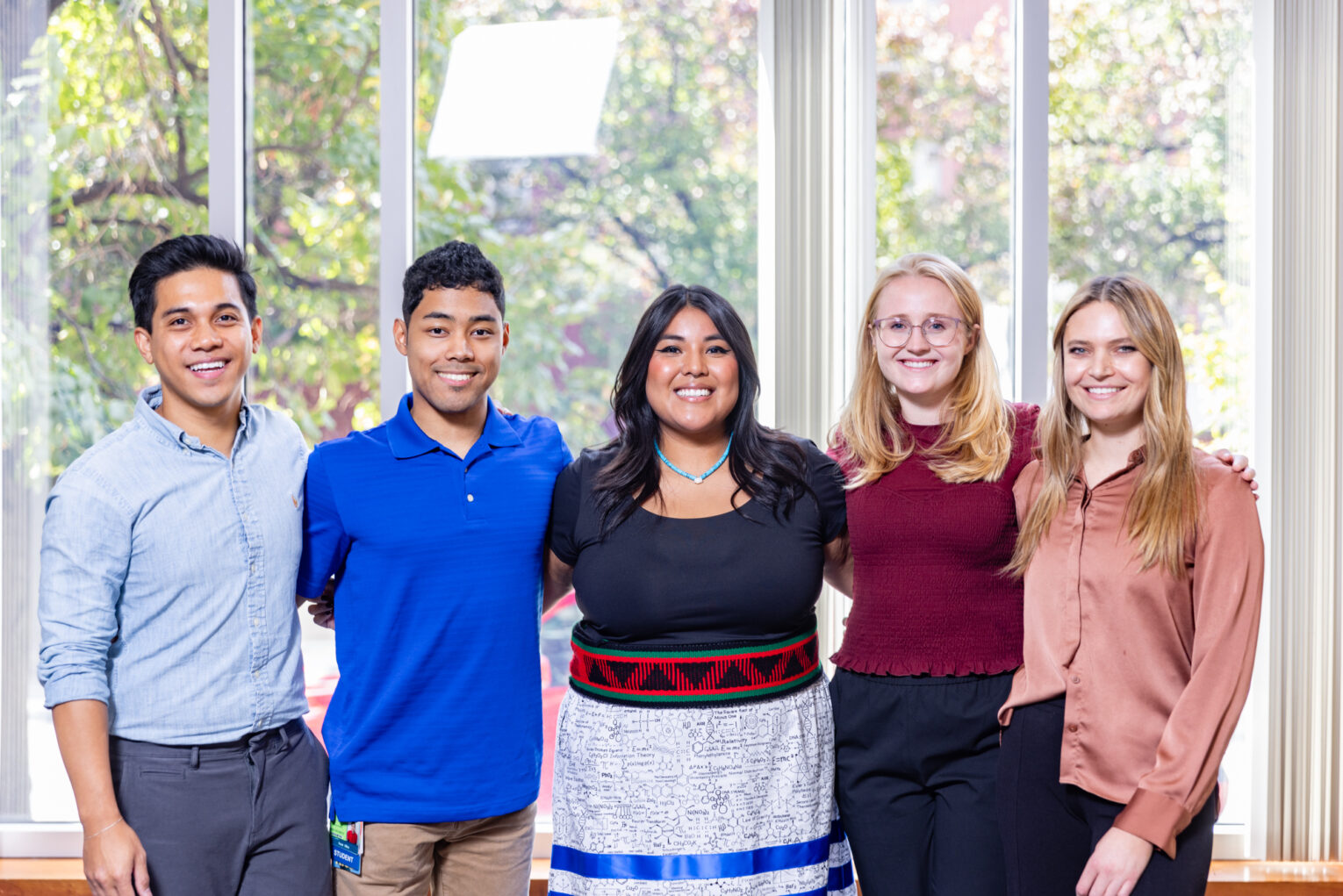
On October 14, the Johns Hopkins School of Nursing and the Indigenous Student Nurses and Allies Association (ISNAA) recognized Indigenous Peoples Day with a celebration centered on food sovereignty and traditional knowledge. Phoebe Keryte, center, is chairperson of the ISNAA. Learn more and see additional photos.
Keryte will graduate this spring and has her heart set on labor and delivery care. As a recipient of the prestigious Indian Health Service scholarship—dedicated to shaping the next generation of health care leaders—she is committed to returning to work within tribal communities. Keryte aims to support and empower Indigenous matriarchs as well as Two Spirit and trans people who give birth.
Down the road, Keryte aspires to continue her nursing education to revitalize cultural midwifery practices and mentor future Indigenous nurses. “I want to explore how our ancestors cared for birthing mothers and integrate that knowledge with Western medicine,” she explains.
With a heart for service and a vision for change, Keryte is shaping the narrative of what Indigenous health care is and what it can become. ◼


